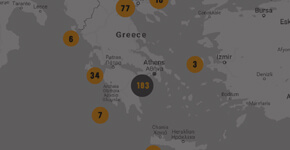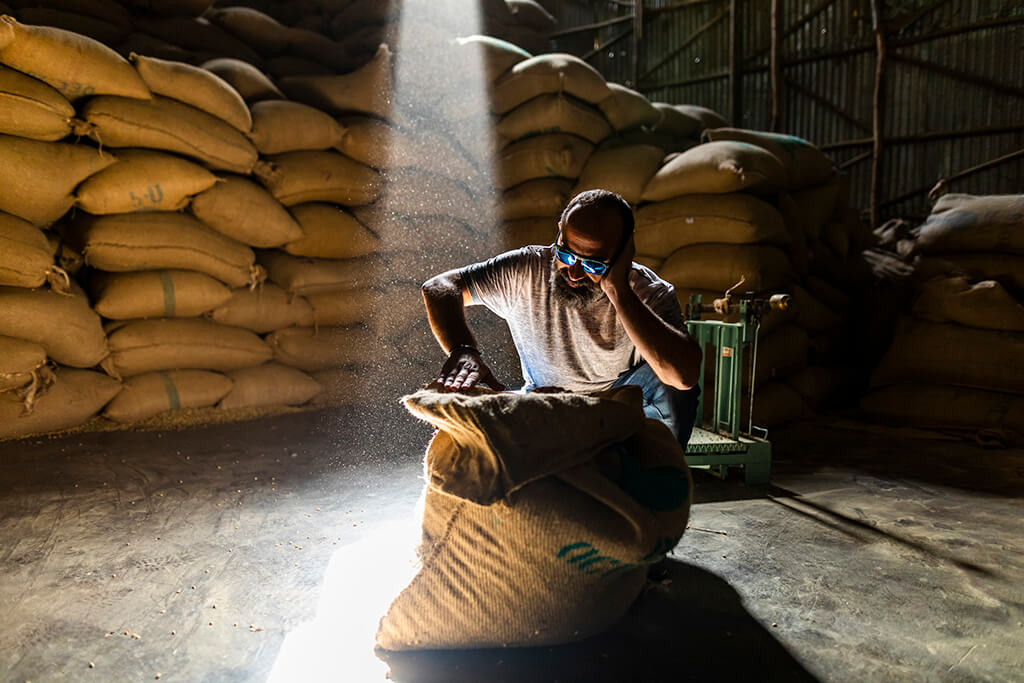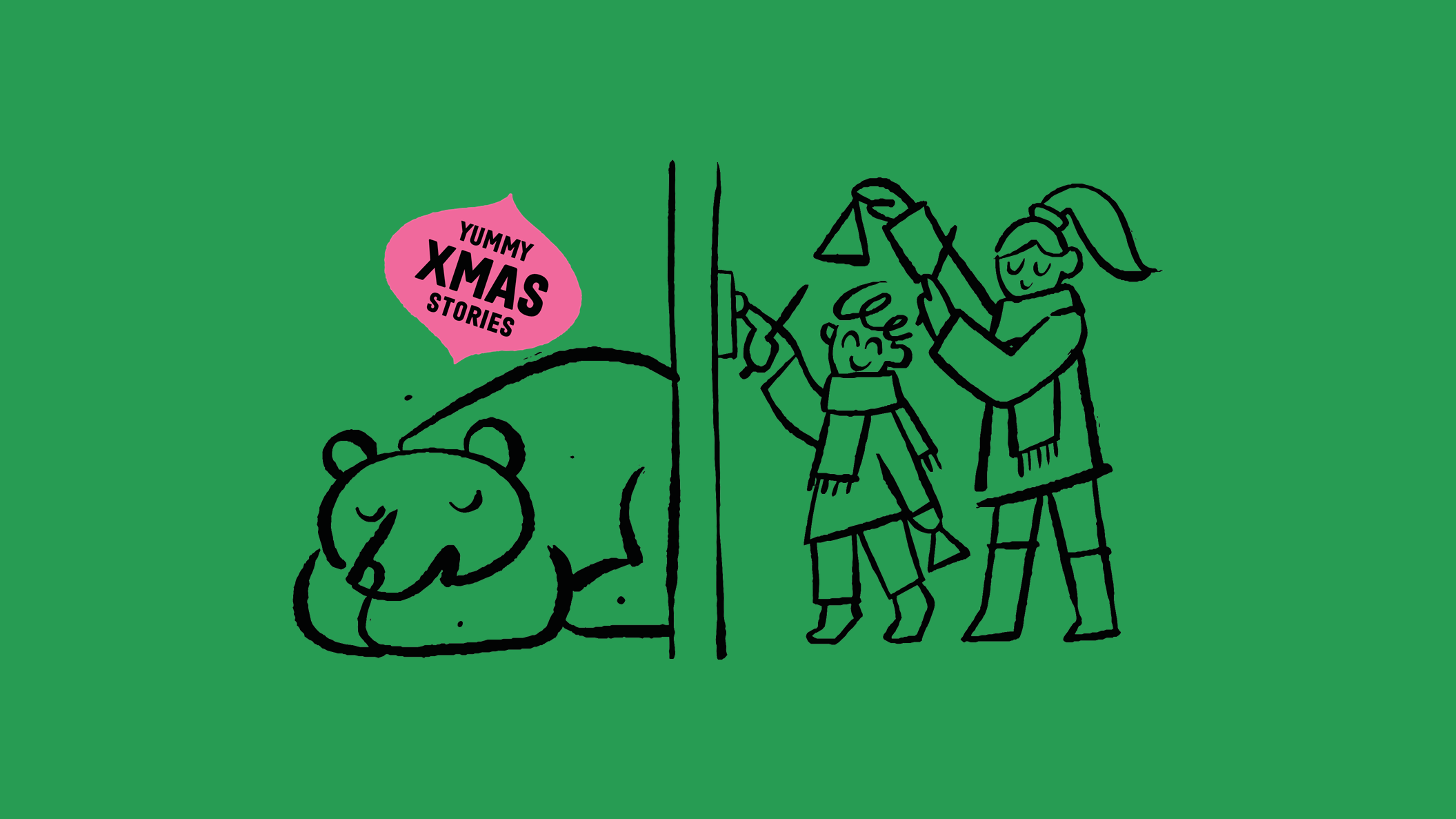On October 1, as is the case every year, everyone around the world will be celebrating International Coffee Day. The star of the day is this precious plant that is magically turned into our favorite beverage: coffee! Coffee is being celebrated by the people who behind the scenes are involved in its creation and magic; from producers, roasters, baristi, partners and affiliates all the way through to distributors. While each link in this chain is just as valuable to us, a question arises: Do producers actually enjoy the “fruits” of their labor?
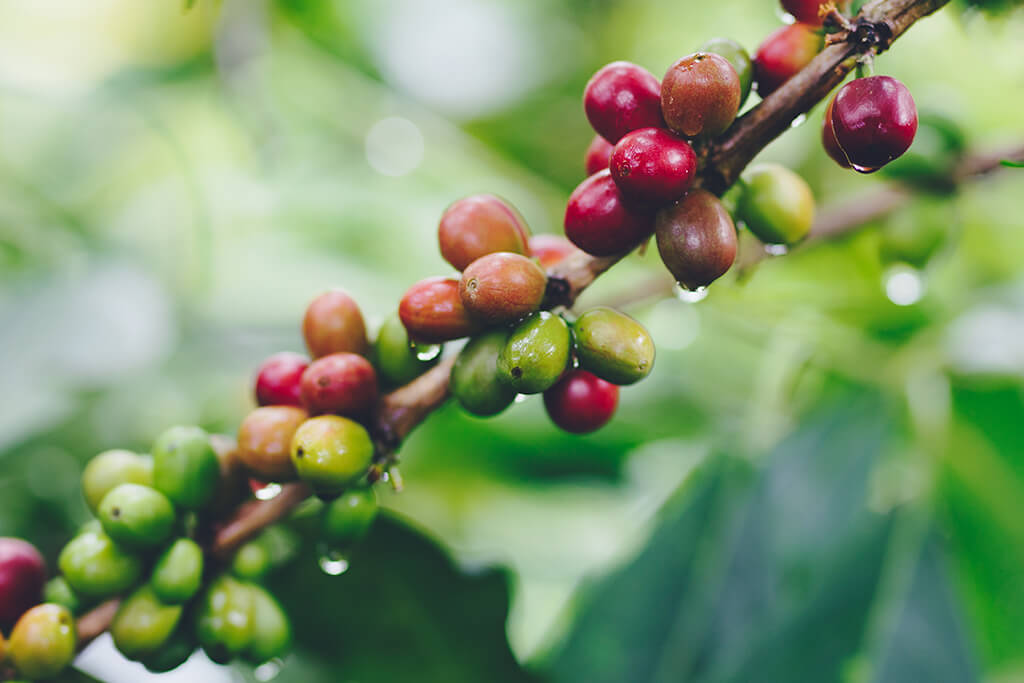
The coffee cherry
A day with a very special meaning
This narrative will be a little different. International Coffee Day is a very important reason to celebrate and, at the same time, reflect. Fact 1: Coffee consumption is increasing on a daily basis, reaching 3 billion cups a day. Fact 2: There has been a dramatic drop in its value, the lowest in the last 15 years. The consequences? Millions of farmers and producers are struggling to earn enough to live, while the well-being of their families is also under threat. Fact 3: From each cup of coffee that costs say US$3 in the United States, a small producer receives the equivalent of a mere 1 cent.
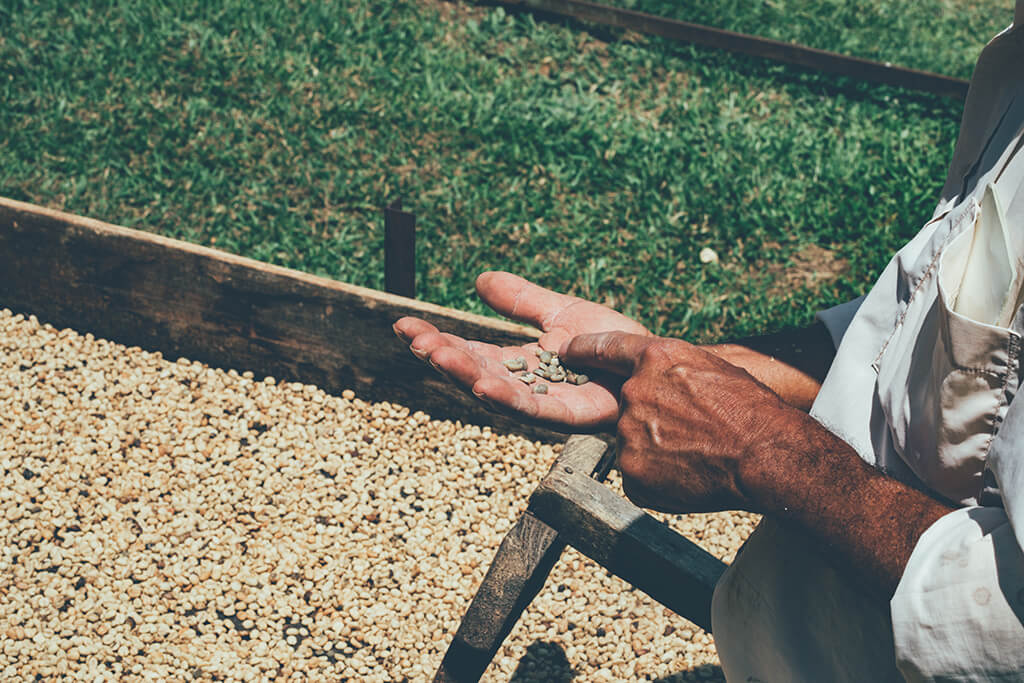
Their most precious material.
What can we do about it?
Our collaboration with producers is conducted exclusively through Direct Trade. The coffee passes directly through us, changing as few hands as possible. Why is this so important? Producers belong to cooperatives that promote good quality coffee, protect the environment while continuously improving cultivation conditions, learning new cultivation techniques best suited to the type of coffee they grow, and maintaining a code of ethics concerning labor conditions and the valuable fruit itself. Thus, we build relationships based on trust and form an inextricable bond with them that we all benefit from. The producers, us and you!
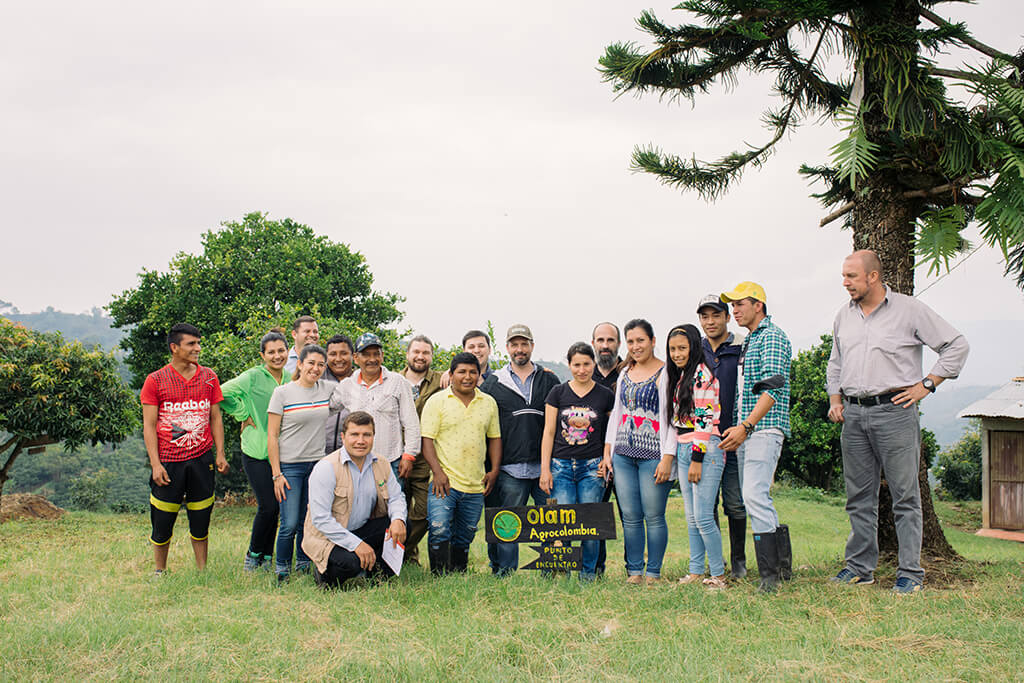
A family farm in Colombia – member of a cooperative.
Their stories are our motivation
In this sense, we’ve been able to help producers like Salzi from Indonesia. As a 2nd generation owner, the 1 acre that he inherited from his parents is his only source of income. Until 2010, there was no local coffee exporter and when they finally managed to export their coffee, prices were volatile and low. In 2015, Salzi made the decision to become a member of the local cooperative, to establish sustainable partnerships and improve his coffee production practices. As he himself says, “With all these certifications (i.e. Organic and Fairtrade certifications) we are now producing more quality coffee and are being paid higher prices than before. At the same time, we help protect the environment and apply the principle of sustainable cultivation.”
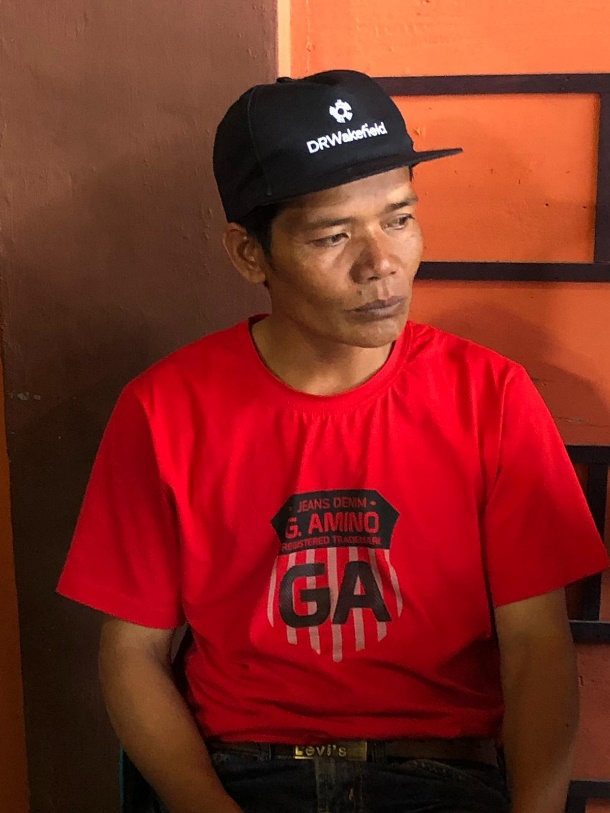
Salzi feels proud of his farm.
The result?
Salzi and every one of the producers we cooperate with through Direct Trade means that the beans we procure that you eventually drink and enjoy create a specialty coffee without the need for any intermediaries whatsoever.
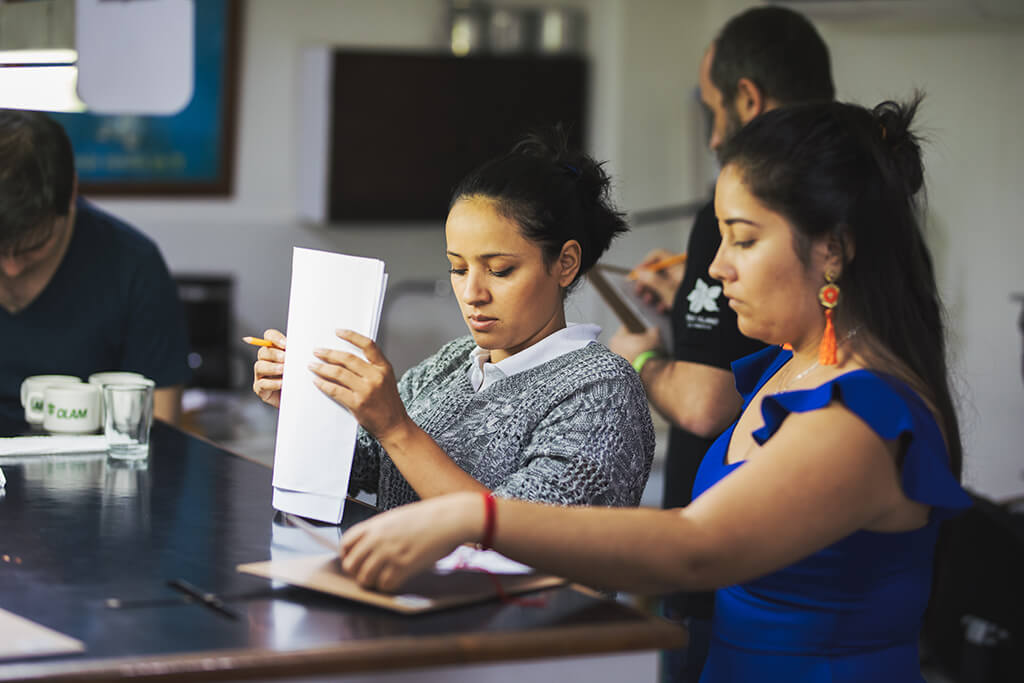
Women in leadership in coffee production.
A woman-power symbol in coffee production
Likewise, a producer in Guatemala told us about her own personal experience. Having inherited the farm from her mother, she discovered her passion for coffee and gradually began to cultivate more trees and improve the wet processing coffee process.
The biggest difficulty she faces? The fact that she’s a woman. She says she has managed to balance family and work, while also having the right people in the right places to do the job in the right way. But she feels she has to fight more to win the trust of her employees, especially after she became the owner of the farm.
Having been a member of the Guatemalan “Mujeres en Café” cooperative for the last 10 years, she tells us, “I have been a member of the board for the last two seasons which has aided Guatemalan women who are coffee producers help one another.”
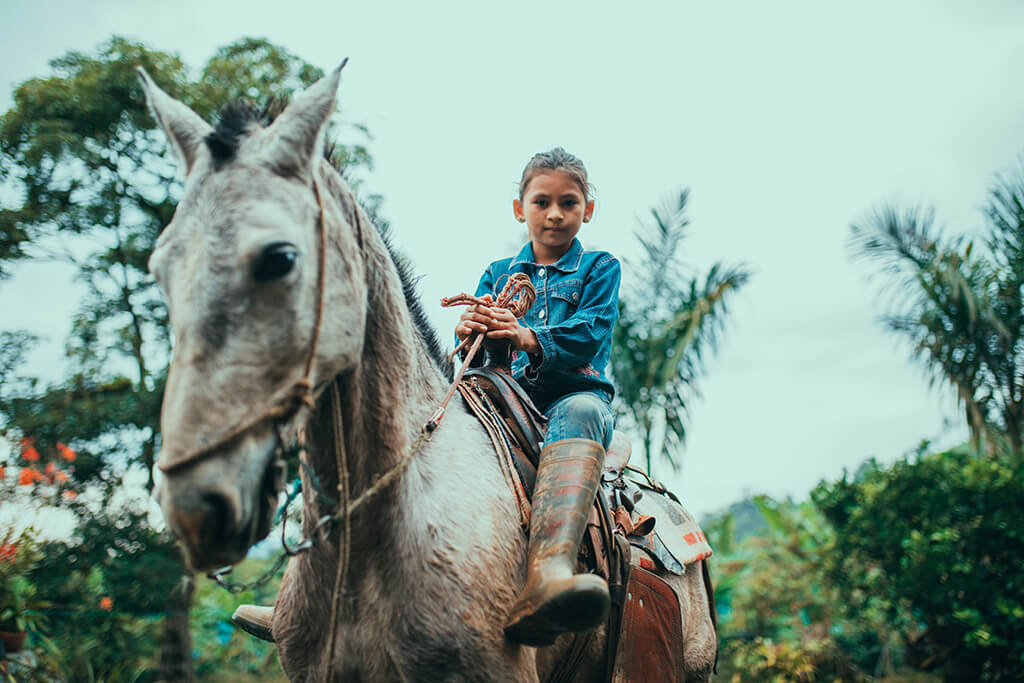
The farms are passed on from generation to generation. And that should be their future.
Straddling between the present and the future …
… she observes that coffee farms have been disappearing dramatically because of low coffee prices worldwide. She feels lucky because she at least makes ends meet and manages to fulfill her obligations.
Direct Trade also contributes to this.
Her message? Making sure that people keep on drinking coffee. She confidently believes that “Guatemalan coffee is one of the best in the world and my farm has deep historical roots. The plantation may look like a huge garden; even our home is 110 years old which was built by Spanish immigrants in 1890 and is an “architectural revival” of a Spanish castle.”

Hoping to open new horizons in the coffee world.
What does all this mean and why is it so important?
If International Coffee Day is not an important occasion to talk about problems and solutions in the coffee industry then what is it? We can’t just talk about varieties and blends, because without the producers and the huge numbers of people working on the farms, coffee simply wouldn’t exist. We owe them our respect and help so that they can continue to offer us what we love most: specialty coffee!
If you want to help too, we ask you that you join us and support the #coffeepledge movement. We all love coffee, so let’s do our best to save it!

Ethiopia Damo: The 1st Chapter in the Ethiopia Motherland Edition
Celebrate International Coffee Day with us!
Where? At your neighborhood Coffee Island store! When? On Tuesday 1st October! Why? So that you can enjoy a Microfarm Project Ethiopia Damo for the price of your daily coffee – a limited specialty coffee you definitely shouldn’t miss.







